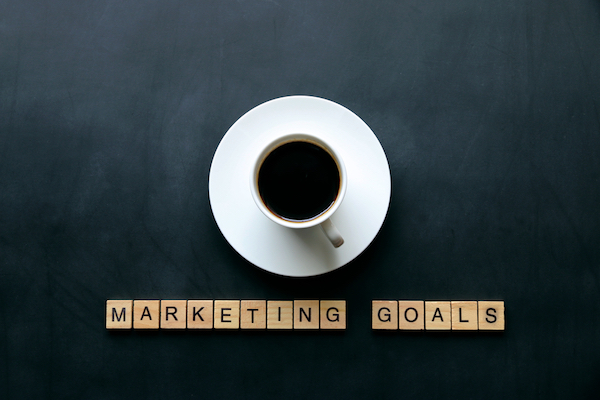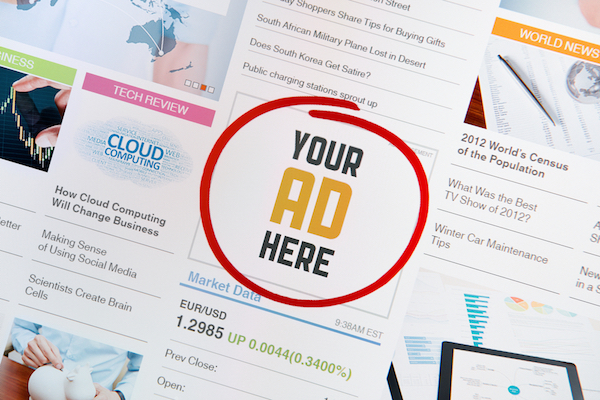In this 6-minute read:
- Determine your marketing goals and how you will measure success
- Define your target audience
- Perform market research
- Create rich content
- Set a budget and timeline
- Decide which methods of distribution you’ll use
Marketing is a key strategy for any business to reach more potential customers and grow revenue. It’s how you find consumers and help them recognize your brand and decide to spend with you.
Attract new customers and keep them loyal with reputation management software. Learn more, plus get free reputation monitoring and customer insights when you sign up for Womply Free!
Starting a new marketing campaign can be scary, and comes with its own set of challenges, but if you start by learning the 4 crucial steps of building a small business marketing plan and understand the necessary components of a good campaign, you can find success.
In this article, we’ll guide you through your first marketing campaign with a series of questions that you’ll need consider carefully and fully. This will help you outline your first campaign and find the direction that you want to take with it.
What are your specific goals for your marketing campaign?
First, you need to determine the purpose of your marketing campaign. Why are you making this effort? What exactly do you hope to gain from your marketing?
You should make your goals as specific as possible. Create SMART goals that you can easily measure and determine how well your campaign is performing.

Consider one or more of these possible goals to help guide you in finding your campaign’s purpose:
- Increase brand awareness
- Promote a new service or product
- Collect customer feedback
- Generate more revenue through customer acquisition
- Get more user engagement
- Advertise upcoming events or sales
- Drive traffic to your website
- Grow followers on your blog or social media accounts
- Increase local SEO
Once you’ve determined your goal (and although “all of the above” may be a common desire for small business owners, it’s more helpful to narrow down the focus of any marketing campaign), it will be easier to find the proper avenues for executing that goal and measuring your success, which brings us to our next question.
How will you measure the success of your marketing campaign?
To know if you’ve executed a successful campaign, you need to be able to accurately measure your results. So, how will you do that?
Let’s look at some of the broader goals that we mentioned and some possible ways for measuring the success of their corresponding campaign.
Increase brand awareness
There are multiple free and paid tools that can help you measure the amount of mentions your business is getting online, on social media, and in the press. Is your reach on social media and online in improving?
Promote a new service or product
You can measure the actual sales that you make on this product or service, or count pre-orders or reservations/appointments if it isn’t available yet.
Collect customer feedback
This one speaks for itself. In addition, the actual feedback you receive from customers and even online reviews and mentions can help you measure related goals and improve your products and services.
Generate more revenue
Measure the number of leads that came from your campaign and the resulting increase in sales that it brought in.
Get more user engagement
Track the amount of shares, mentions, and interactions you are getting from your website, social platforms, and email marketing campaigns.

Advertise upcoming events or sales
Track the ticket sales, vendor bookings, social mentions, and/or attendance at special sales events that this campaign brings in.
Drive traffic to your website
You can easily see if your website visits/sales increase as a result of your campaign.
Grow followers on your blog or social media accounts
Similarly to website traffic, you can judge your success by an increase in subscribers/visitors to your blog and followers on your social media.
Increase local SEO
If your ranking in local searches for keywords you’ve chosen goes from 50 to 10 after your campaign, you can be pretty certain you’ve had success.
Whatever your marketing goals may be, make sure that you have a way to measure the results so you can accurately determine its success and build on that for future campaigns.
Who is your target audience? (be specific)
Before you can run a successful marketing campaign, you need to determine who you will be targeting with this campaign.
Build a persona around your target customer to help you understand them, how they think, their spending habits, and how you hope they will react to your campaign.

Ask the following questions to help you determine your target audience:
- What are my target customers’ general interests?
- How do they spend their free time?
- What are their pain points?
- What social media platforms are they using?
- What kind of marketing messaging do they respond well to? Data and facts? Entertainment? Humor? Aesthetics? Fear of loss?
- Where are they physically located?
- How do they typically spend/purchase?
- Who is your target audience? Age? Gender? Job? Income? Marital status?
What’s currently happening in your industry as far as marketing?
Do some research to determine what kind of marketing campaigns are already being performed and what is working well.
Pay attention to effective marketing efforts and methods of delivery from your competitors and others you respect in your industry. (Remember, “art is theft” and “imitation is the sincerest form of flattery” but you really do need to try to stand out as something different… particularly if you want to avoid a lawsuit.)
What can you do differently from your competition? How are your products or services different (and ideally better)? Do you hope to beat them on price? Do you just want a seat at the table?
Use these questions to help determine your unique selling points and guide the content of your campaign.
What kind of marketing content will you create?
Everything leading up to this point will help you to know what kind of content you should create based on your target audience, your goals, and your market research.
Before you dive into creating your content, make sure you have an overall concept to guide your content creation so that everything within your campaign is consistent and helps to reinforce your brand.

Once you have your concept or theme, determine which type or types of content you want to use to help your campaign see success.
Some common content options for marketing campaigns:
- Blog posts
- Infographics
- Social media events
- Facebook ads
- Google ads and Adwords
- Instagram ads including Instagram Stories ads
- Physical or digital coupons and discount codes
- Broadcast video/commercials
- YouTube video
- Radio ads or podcasts
- Landing pages on your website
- Press releases
- Social media posts
- E-books, white papers, or other digital offerings
- Direct physical marketing—magazine ads, newsprint ads, fliers, posters, billboards
Make sure your content includes a clear call-to-action (CTA) to guide your audience toward your taking action, to support your campaign goals. Some common CTAs include:
- Buy now!
- Call us today!
- Book an appointment
- Learn more
- Click here!
- Visit www.[yourbusinessdomain].com
- Show this coupon
- Mention this ad
- Email us
- Tweet your favorite ____
- Friend us on Facebook
- Fill out the form below
- Submit your email address
- Visit us on Instagram
Knowing the type of content and how you plan to distribute it for your campaign will help you with determining potential costs and setting accurate goals.
What is your marketing budget?
How much money do you have at this time to allocate toward a marketing campaign? Determine how much time will need to be spent creating content, how many people you want to reach with your campaign, and how much money you have available for marketing efforts.

Once you have your budget determined, this will help you decide which marketing platforms will work best for your campaign.
Go deeper: How much should small businesses spend on marketing?
How will you distribute your marketing messaging and content?
This is the big question. Now that you have your purpose, messaging, and audience figured out, you need to choose the platform/s that you will use for the actual distribution of your content.
This is how you will get your content in front of your target audience and (hopefully) fulfill your campaign’s goals.
The PESO model (Paid, Earned, Shared, Owned) can help provide some ideas of platforms that you can use.
Paid
These are the platforms that you can pay to reach more of your target customers.
- Google Ads or other online messaging (search ads, shopping ads, display ads)
- Social media ads (Facebook, Twitter, Instagram, Pinterest)
- Remarketing campaigns (targeting people who have already visited your website, for example)
- Sponsorships
- Paid influencers
- Paying for leads
- Print media
- Television/radio/digital broadcast ad placement
- Point of purchase displays in other retailers
Earned
These marketing avenues help you earn the additional reach provided. They don’t necessarily cost your business any money but can take a good amount of time.
- Influencer marketing (Instagram and Twitter are huge for this)
- PR outreach
- Providing exclusives to publications
- Outreach to extended networks
Shared
These platforms allow you to easily share the content that you have created with little to no cost.
- Social media channels
- YouTube
- Online Forums
- Referrals or word of mouth

Owned
These are the channels that you already own (or should already own) that you can use to enhance your marketing campaign.
- Your website and blog
- A company newsletter
- Email campaign
- Your social media profiles
- Point of purchase displays in your store, physical banners/posters/flyers, etc.
From these marketing platforms, choose at least two or three channels that you can use for your campaign. The best marketing campaigns will utilize multiple channels from each category, but make sure that whatever you choose, you devote enough time and resources to achieve good results.
It’s better to choose one or two avenues and do really well with them than to perform poorly across several channels and lose a lot of money in the process.
What is your marketing campaign timeline?
Determine the right time for your campaign. Is this a seasonal promotion or an ongoing campaign to continuously acquire new customers or improve brand recognition?
Your goals will help you to determine the best timeline and duration of your campaign. Setting a definite start and end date can also help you in creating and achieving SMART goals.

Reach more customers by improving your online reputation
Even with regular marketing campaigns, every business should implement a strategy to continuously improve their online reputation. You can do this by working to earn new customer reviews online, engaging with customers by replying to reviews, and enhancing your online business profiles.
Womply’s reputation management software was designed to help small businesses in these areas with automated processes to save your business time and money. Learn more, plus get free reputation monitoring and customer insights when you sign up for Womply Free!